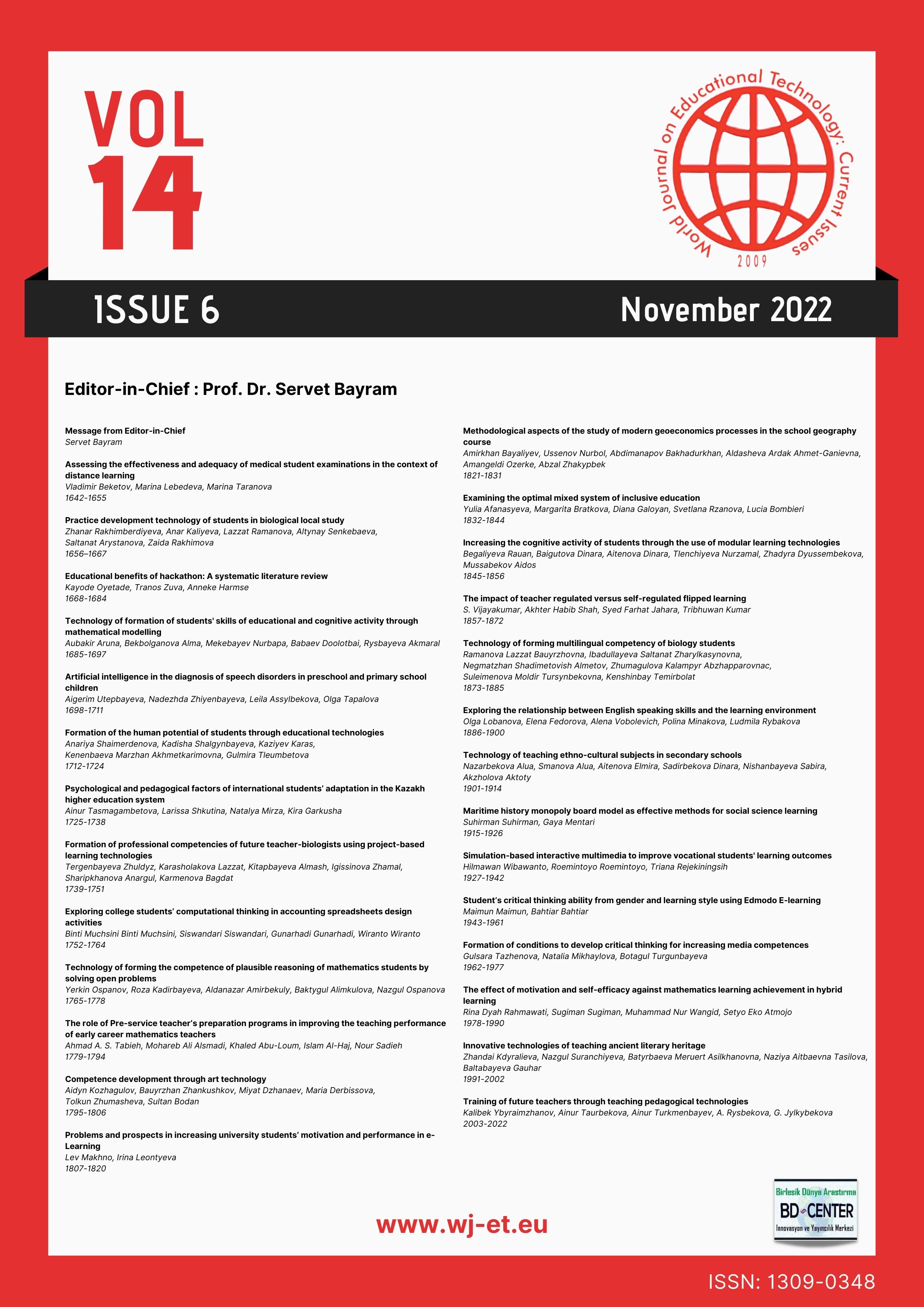Formation of the human potential of students through educational technologies
Main Article Content
Abstract
It is seen that the study is designed with the aim of creating the human potential of students through educational technologies. The research was carried out with the participation of 128 primary school students continuing their education in primary schools in the Kazakhstan region and the study was carried out in the fall term of 2022–2023 in the quantitative research model. A 3-week training was given to the participants included in the study. The subjects of educational technologies and human potential were conveyed on the participant groups in the research and participation was expected. The data collection tool used in the research was delivered to the participant groups by online method and collected. The analysis of the data was made by using the Statistical Package for the Social Sciences programme, frequency analysis, t-test and the results were added to the research in the presence of tables. In the case of the results obtained from the research, it is seen that the use of educational technologies benefits the participant groups in the research and that human potential is formed, thanks to this activity.
Keywords: Educational technologies, human potential, primary school students, distance education;
Downloads
Article Details

This work is licensed under a Creative Commons Attribution 4.0 International License.
World Journal on Educational Technology: Current Issues is an Open Access Journal. The copyright holder is the author/s. Licensee Birlesik Dunya Yenilik Arastirma ve Yayincilik Merkezi, North Nicosia, Cyprus. All articles can be downloaded free of charge. Articles published in the Journal are Open-Access articles distributed under CC-BY license [Attribution 4.0 International (CC BY 4.0)].
Birlesik Dunya Yenilik Arastirma ve Yayincilik Merkezi (BD-Center)is a gold open-access publisher. At the point of publication, all articles from our portfolio of journals are immediately and permanently accessible online free of charge. BD-Center articles are published under the CC-BY license [Attribution 4.0 International (CC BY 4.0)], which permits unrestricted use, distribution, and reproduction in any medium, provided the original authors and the source are credited.
